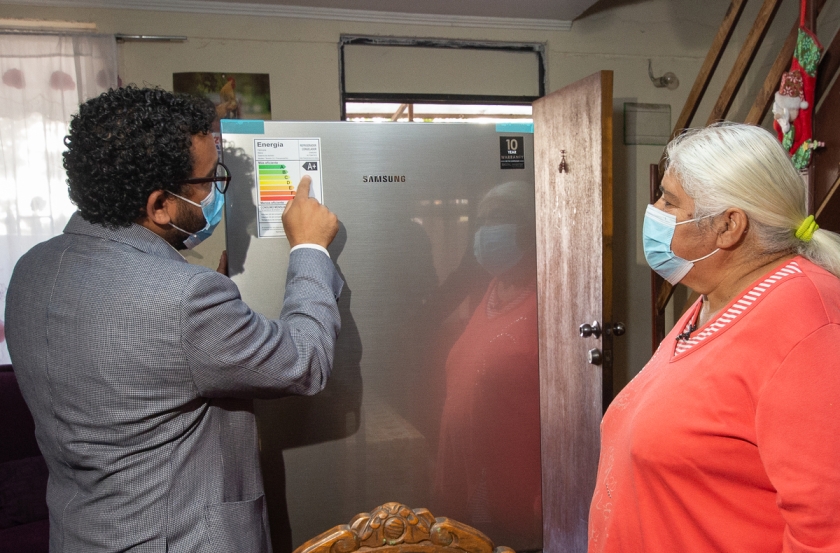
UK saves £163 m due to reducing energy consumption last year
The UK saved over £163 million last year due to reduced overall energy consumption across ...

The United for Efficiency (U4E), a United Nations Environment Program (UNEP)-led initiative backed by the Global Environment Facility (GEF), will help Chilean Chilean consumers more than $294 million in electricity costs every year through supporting them to get new refrigerators and freezers.
Under the U4E scheme, which operates in countries around the world, consumers can buy new refrigerators with a discount of up to 35 per cent if they trade in their old, energy-inefficient refrigerator. U4E also takes away the old product for free and ensures it is safely recycled for free. Chile’s old-for-new-appliance campaign replaced more than 1,500 ageing refrigerators in its first month alone.
Annually the project aims to save over 1.3 terawatt hours of electricity, avoiding the need to build three power plants of 100 megawatts each. Newer refrigerators and freezers will save over 600,000 tons of carbon dioxide each year, the equivalent emissions from more than 340,000 cars.
“U4E aims to make energy efficient, environmentally friendly refrigerators available to all,” said Paul Kellett, U4E’s global program manager. “Cost shouldn’t be an inhibitor to an energy efficient-product.”
Cooling Emissions and Policy Synthesis, a UNEP and International Energy Agency report, found that the impact of energy-efficient refrigerators can be significant. By combining energy-efficient products and moving away from inefficient, polluting refrigerants, greenhouse gas emissions of between 210 – 460 gigatons of carbon dioxide equivalent could be avoided over the next four decades. Based on 2018 levels, this equates to between four to eight years of total annual global greenhouse gas emissions.
“These types of projects are critically important to reducing emissions and energy use in developing countries, especially as we expect a significant growth in the need for refrigeration over the next decade,” said Filippo Berardi, GEF Senior Climate Change Expert.
“There is a crucial window of opportunity to ensure that these growing needs are satisfied with reliable, low-emission technology, which can also allow customers to save on their electricity bills.”
The problem of energy-inefficient refrigerators in Chile is acute, according to U4E. There are over 6.8 million domestic refrigerators and freezers in Chile, with almost 100 per cent of households owning one. More than 1 million of these are at least 15 years old. The Ministry of Energy in Chile estimates that 19 per cent of all household electricity used comes from refrigerators.
There is hope the lessons learned in Chile can help other nations saddled with inefficient, polluting appliances. “Many countries can benefit from old appliance replacement programs like Chile have successfully implemented here,” said Kellett.
The UK saved over £163 million last year due to reduced overall energy consumption across ...
Apple marks the 2024 Earth Day with offering opportunities for users to educate themselves on ...
LG has decided to mark the 2024 Earth Day with a 3D anamorphic digital out-of-home ...


اترك تعليقا